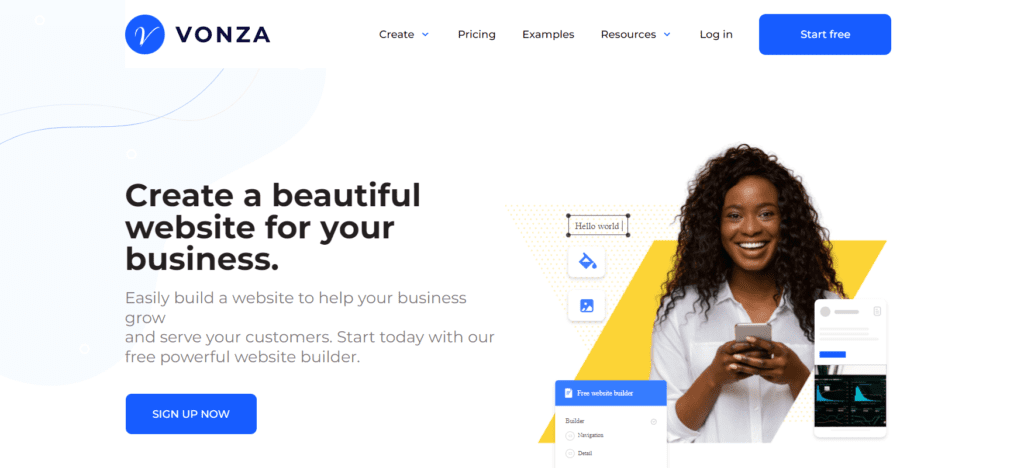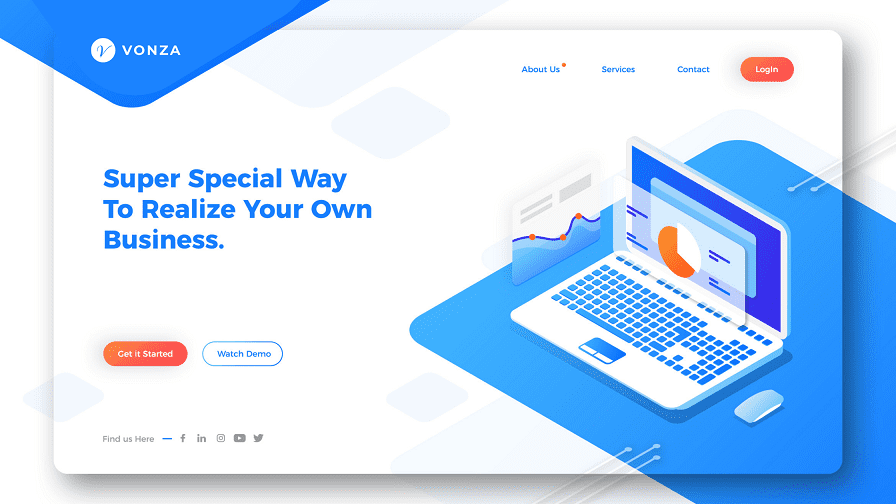Choosing the right website builder platform is crucial for creating a successful online presence. With numerous options available, it’s important to select a platform that aligns with your specific needs and goals.
A reliable website builder simplifies the process of designing and launching a website, even for those with limited technical expertise. From customizable templates to drag-and-drop editors, these tools offer user-friendly interfaces to create visually appealing and functional websites. Whether you’re a business owner, blogger, or an aspiring entrepreneur, making an informed decision on a website builder can significantly impact your online success.
When choosing a website builder platform, it’s essential to consider factors such as ease of use, flexibility, scalability, and available features. Ease of use ensures that even individuals without coding knowledge can navigate the platform effortlessly. Flexibility allows for customization and the ability to tailor the website to your brand’s unique identity.
Scalability ensures that the website builder can accommodate future growth and expansion as your online presence evolves.
Additionally, examining the available features, such as e-commerce integration, SEO tools, responsive design, and customer support, can help you select a website builder that meets your specific requirements. By carefully evaluating these factors, you can confidently select the right website builder to bring your online vision to life.

What is Website Building?
Website building refers to the process of creating a website from scratch or using pre-designed templates and tools. It involves combining various elements such as text, images, videos, and interactive features to construct web pages that are accessible through the internet.
Website builders provide user-friendly interfaces and drag-and-drop functionality, eliminating the need for coding skills. By selecting a website builder and utilizing its tools, individuals can design, customize, and publish their websites without extensive technical knowledge.
In simple terms, website building is like constructing a digital space on the internet. Just as a physical building is made up of bricks, cement, and other materials, a website is built using digital components.
Website builders provide the tools and resources necessary to assemble these components in a visually appealing and functional manner. It involves selecting templates, arranging content, customizing designs, and organizing navigation to create a user-friendly experience.
The end result is a virtual destination where people can visit, explore, and interact with the information or services provided. Website building allows individuals, businesses, and organizations to establish their online presence and effectively communicate with their target audience.
Recommended Read: A Step-by-Step Guide to Building Your First Website Using Vonza
Benefits of Having a Website
In this section, we are going to explore the key benefits of having a website.
- Online Presence – A website provides a 24/7 online presence, allowing people to find and access your information, products, or services at any time, from anywhere in the world.
- Increased Visibility – With a website, you can reach a wider audience and increase your visibility beyond traditional geographic boundaries.
- Branding and Credibility – A professionally designed website enhances your brand image and credibility. It allows you to showcase your expertise, values, and unique selling points, establishing trust with visitors.
- Customer Engagement – Websites enable direct communication with customers through contact forms, live chat, or social media integration. This fosters engagement, provides support, and helps build long-term relationships.
- Marketing and Promotion – A website serves as a central hub for your digital marketing efforts. It enables you to share valuable content, promote products or services. You should also be able to implement SEO strategies to improve visibility in search engine results.

25 Factors to Consider in Choosing the Right Website Builder
1. Ease of Use
Look for a platform with a simple and intuitive interface, as well as drag-and-drop functionality, making it easy for you to create and manage your website without technical expertise.
2. Templates and design options
Ensure the platform offers a diverse collection of professionally designed templates that you can customize to match your brand and aesthetic preferences.
3. Responsive design
A platform that supports responsive design ensures your website will look great and function properly on different devices, such as smartphones, tablets, and desktop computers.
4. Customization flexibility
Choose a website builder platform that provides extensive customization options. You should be able to personalize the design, layout, colors, fonts, and other visual elements to reflect your brand identity.
5. Scalability
Consider a website builder platform that can handle the growth of your website, including increased traffic, content expansion, and the addition of new features as your business or audience expands.
6. E-commerce features
If you plan to sell products online, select a platform that offers robust e-commerce functionality. Some of these include secure payment gateways, inventory management, and flexible product display options.
7. SEO capabilities
Look for a platform that includes built-in SEO tools or features, such as customizable metadata, clean URL structures, and sitemap generation, to help improve your website’s search engine visibility.
8. Blogging capabilities
If you intend to have a blog, choose a platform that offers easy content creation and management, as well as features like commenting systems and RSS feed integration to engage with your audience effectively.
Starting Blogging as a Business

9. App integrations
Consider a platform that allows seamless integration with third-party applications and services, such as email marketing tools, analytics platforms, and social media networks. This will enhance your website’s functionality.
10. Speed and performance
Select a platform that prioritizes fast loading times and delivers optimal performance, ensuring a smooth browsing experience for your visitors.
11. Security features
Ensure the website builder platform provides robust security measures, such as SSL certificates, data encryption, and regular backups. This will protect your website and sensitive user data from potential threats.
12. Pricing and plans
Evaluate the platform’s pricing structure and plans to find one that fits your budget. It should also offer the necessary features and scalability for your website.
13. Customer support
Choose a platform that provides reliable customer support options, such as live chat, email, or phone support, to assist you with technical issues or answer your questions promptly.
14. Community and resources
Consider a platform with an active user community, 15. forums, tutorials, and documentation. These resources can help you learn, troubleshoot, and get advice from fellow users.
15. Multilingual support
If you require a multilingual website, look for a platform that supports multiple languages and offers localization features, allowing you to reach a broader audience.
16. Analytics and reporting
Select a platform that includes built-in analytics tools or allows integration with third-party analytics platforms, enabling you to track and analyze your website’s performance, visitor behavior, and marketing efforts.
17. Social media integration
A platform that seamlessly integrates with social media platforms enables you to display social media feeds, share buttons, and foster engagement with your audience across multiple channels.
18. Multichannel marketing
If you plan to engage in multichannel marketing, consider a platform that supports various channels like email, SMS, and push notifications, allowing you to connect with your audience effectively.
19. Mobile app
Some platforms offer a mobile app that allows you to manage your website on the go, providing essential features and functionality at your fingertips.
20. User reviews and ratings
Before committing to a platform, research and read user reviews and ratings to gain insights into the experiences and satisfaction levels of other users.
21. Trial period or free plan
Take advantage of trial periods or free plans offered by the platform to test its features, and user-friendliness. It should be suitable for your specific website needs before making a final decision.
22. Data portability
Ensure the platform allows you to easily export your website’s content and data, ensuring you have the freedom to switch to a different platform in the future if needed.
23. Futureproofing
Consider the platform’s track record of regular updates and improvements. Check its commitment to staying current with evolving web technologies, ensuring your website remains relevant and functional over time.
24. Ownership and control
Review the platform’s terms of service to ensure that you retain ownership and control over your website and its content without any unnecessary restrictions or limitations.
25. Your long-term goals
Finally, consider your long-term goals and aspirations for your website. Choose a platform that aligns with your vision, growth plans, and ability to scale your online presence effectively.

Thoughts and Recommendation
Choosing the right website builder for small business is a critical decision that can greatly impact the success and functionality of your website. By considering factors such as ease of use, customization options, scalability, e-commerce features, SEO capabilities, and customer support, you can make an informed choice that aligns with your specific needs and goals. It’s essential to prioritize factors that are most important to your website, whether it’s a simple portfolio site, an online store, a blog, or a complex business website.
In conclusion, taking the time to research and evaluate different website builder platforms is well worth the effort. Firstly, carefully consider the features, flexibility, and support offered by each platform. Secondly, consider it’s ability to adapt and grow with your website over time. Remember that there is no one-size-fits-all solution, so choose a platform that suits your technical abilities. Thirdly, it should align with your long-term goals, and provides the necessary tools to create a professional and functional website. With the right website builder platform, you can confidently build and maintain a successful online presence for your business or personal brand.
We highly recommend considering Vonza as your website builder platform. Vonza offers a comprehensive range of features, including ease of use, customizable templates, scalability, robust e-commerce capabilities, SEO tools, and reliable customer support. With Vonza, you can create a professional and functional website that aligns with your goals. Whether it’s for selling products, delivering online courses, or building a membership site.
Additionally, Vonza’s commitment to staying up-to-date with evolving web technologies and providing a user-friendly experience thereby, making it a suitable choice for individuals and businesses to look into.
If you’re considering Vonza as a website builder platform, here are some key features and benefits to take into account:
- User-Friendly Interface – Vonza offers an intuitive drag-and-drop website builder that allows you to create and customize your website with ease. Its user-friendly interface makes it accessible for beginners and those without coding experience.
- Customizable Templates – Vonza provides a wide range of customizable templates to choose from, enabling you to create a visually appealing and professional website. You can customize layouts, colors, fonts, and other design elements to match your brand identity.
- Mobile Responsiveness – With Vonza, your website will automatically adapt to different screen sizes and devices. This ensures a seamless user experience for visitors accessing your site from smartphones, tablets, or desktops.
- SEO Optimization – Vonza offers built-in SEO tools, including customizable metadata, URL structures, and sitemap generation. This helps to improve your website’s visibility in search engine rankings and attract organic traffic.
E-commerce Functionality – Vonza’s e-commerce capabilities allow you to set up a secure and fully functional online store. You can manage inventory, process payments, track orders, and provide a seamless shopping experience to your customers.
If you desire to have a high-quality website for your small business, explore Vonza’s website builder.

